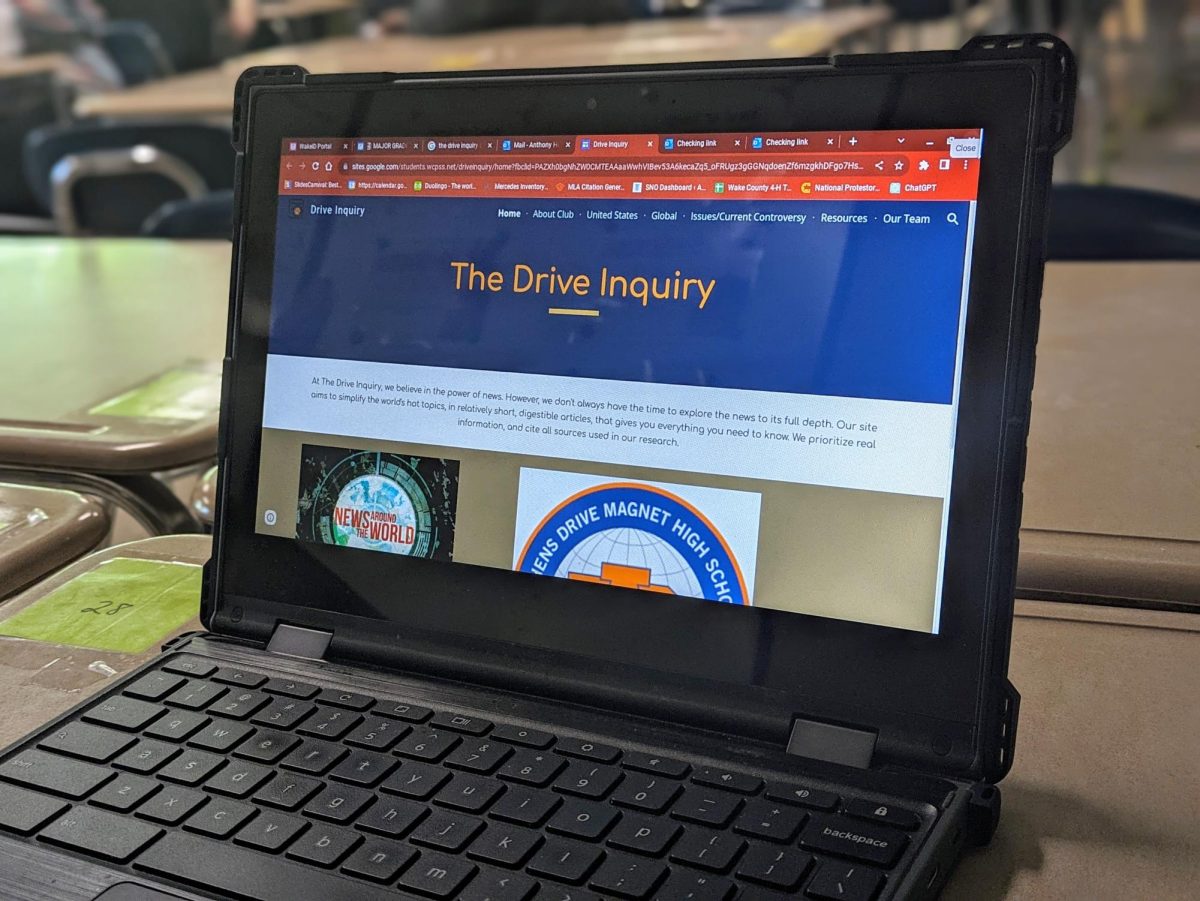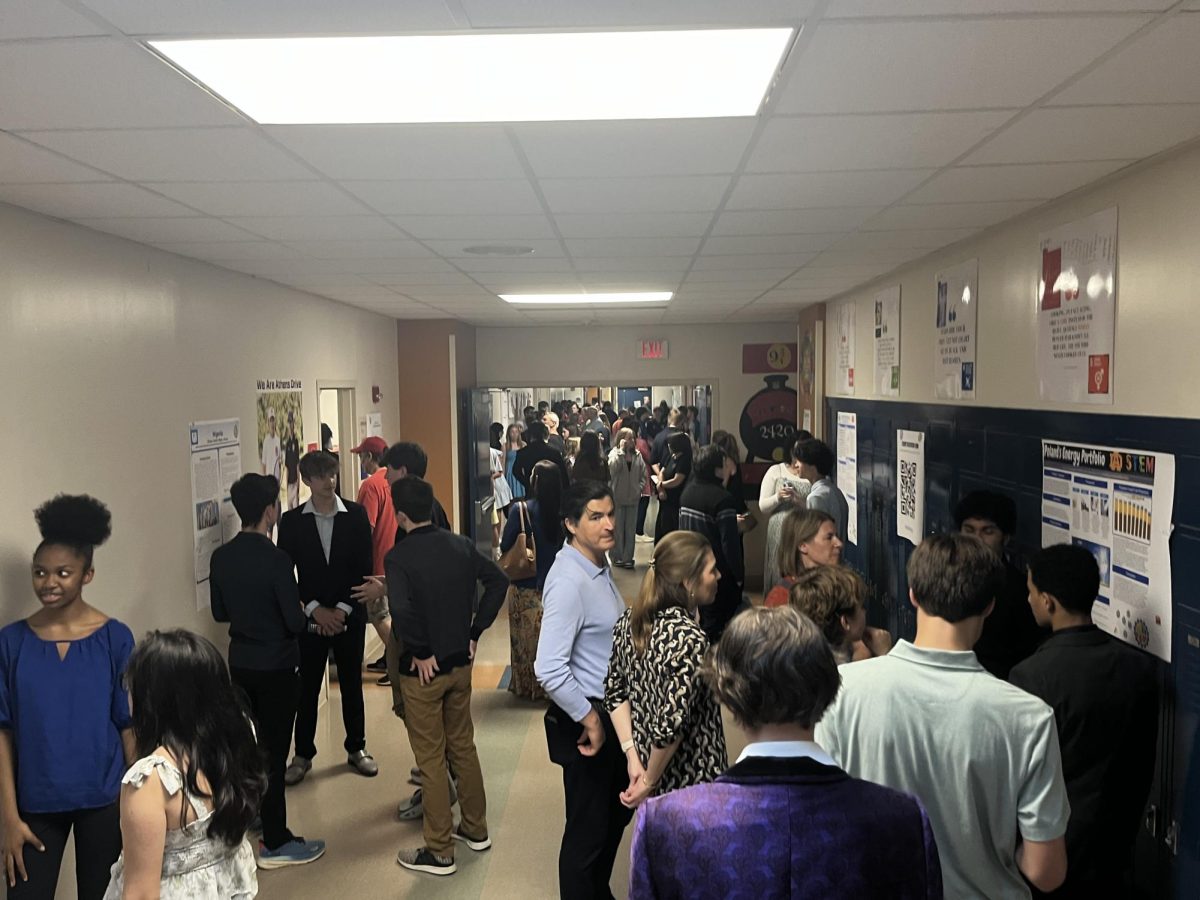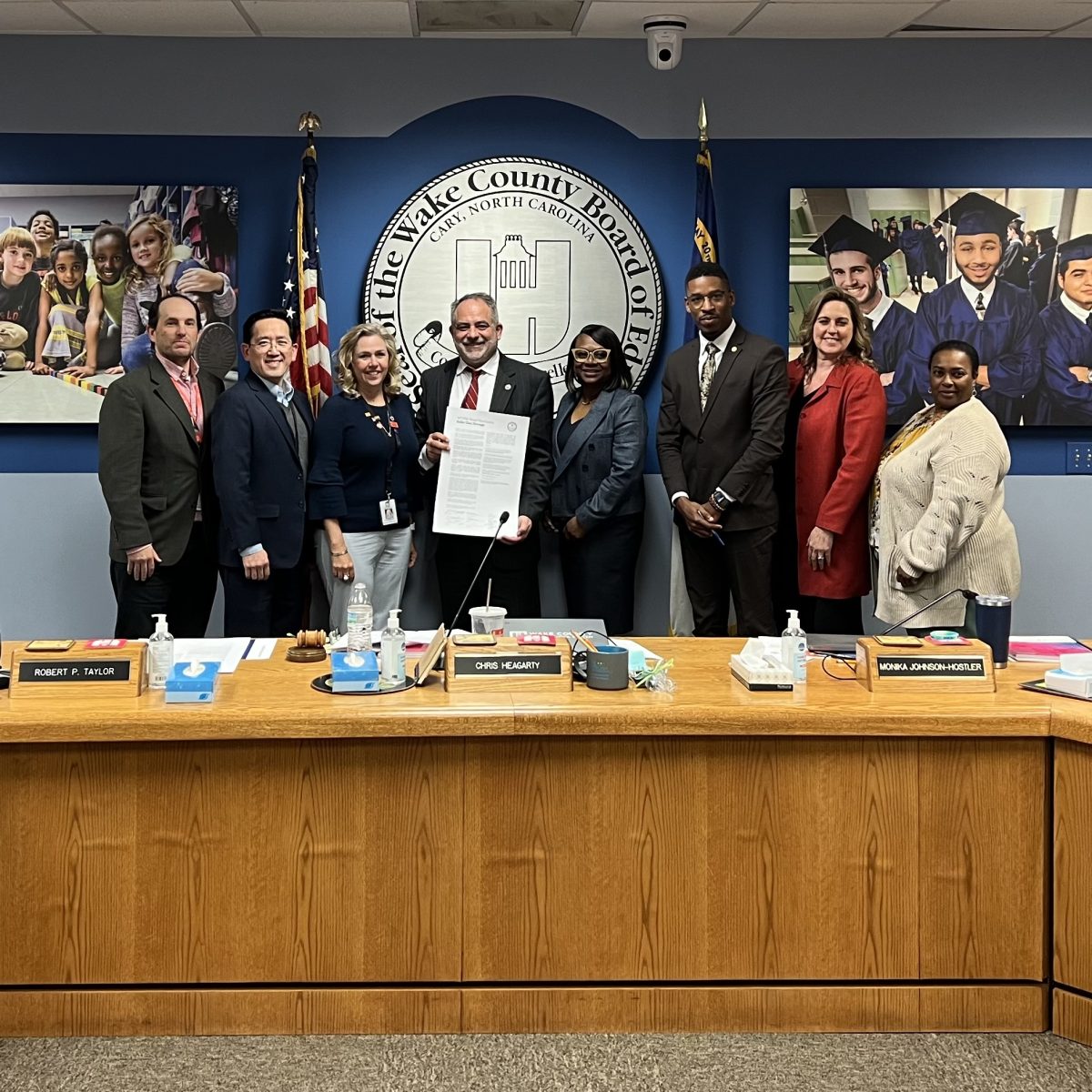There have been countless times where the average high school student, academic, honors or AP (Advanced Placement) class taker, has had their problems regarding stress about school shot down by an adult. These same adults, some of whom have not been in school for decades, argue that school has not gotten more difficult in the past 10 years. This essentially becomes erasure for students developing mental illnesses because of school.
Ever since the No Child Left Behind (NCLB) Act came into effect, school has become one of the leading causes for stress, anxiety and depression in high schoolers. A full 83 percent of students claim in a finding done by Stress In America that school was “a somewhat or significant source of stress.” The same study was done on adults, and while stress in an adult’s life is to be expected, teenagers reported feeling equally, if not more, stressed than adults.
“Many American teens report experiencing stress at unhealthy levels, appear uncertain in their stress management techniques and experience symptoms of stress in numbers that mirror adults’ experiences,” reported the Stress In America survey.
Many students who report these “unhealthily” high stress levels are also taking multiple honors or AP classes. The purpose of AP classes are to prepare students for college, and AP students usually end up with a higher GPA and an easier road for good scholarships to college if they do well in the class. However, efforts to reach this goal often costs their mental health and social life.
“AP classes mimic college courses in the requirements, the workload, and what’s expected of the students,” said Gaye Weintraub, a tutor from Texas.
Most schools, like Athens Drive, always encourage their pupils to strive for the best. They also force them to consider the future that will come out of their grades and end of course testing scores, as well as their GPA.
Another issue is that while AP classes are great on college applications, there are students with pre-existing conditions and obligations that automatically count them out of the opportunity that could give them a better future. This also includes students that drop out of their AP classes due to not being able to handle the workload, a move that looks bad on college applications. The jump from AP to even honors is a huge gap – many of the things learned in AP as opposed to honors are completely different on some areas of curriculum, so much that AP students take teacher-made exams. Honors and academic students take the same state-made exams as each other, despite the fact that honors students typically learn more material than their academic class peers.
“Taking APs is definitely stressful, but it’s all about time management. It’s a lot more work and you have to put a lot more thought into what you do,” said Emma Vtipil, junior. “Overall, as long as you really keep track of everything and stay on top of things, it’s manageable. But it’s definitely tricky and you definitely have to be in control, otherwise, it’s a lot of work… you’re asked to do a lot of high-level thinking.”
It is also not uncommon for students taking end-of-course exams to not even see much of the material learned in class on the state-made test.
“There’s a lot of stuff I learn in class that isn’t on an exam,” said Ethan Kulp, freshman. “I see probably only about half of the things I learned in class.”
End-of-course exams were not new and have always been made by the state, but ever since NCLB was introduced, the exams measure much more than what they initially did. These exams make the decision that, even if the student performs well in the class and earns a passing grade, a low exam score can result in failure and the potential repetition of the class. The stress of exams are usually already enough for a student to perform poorly while taking it, resulting in a low grade due to pressure. However, failing the exam has often lead to negative effects on the student that are not always school-related.
Schools primarily base a student’s rank on their test scores. Google searching “exam failure depression” will lead you to a page full of links on how to cope with the failure of exams, many of the descriptions including acknowledgements that students often feel depressed and anxious. A study done in England about stress and anxiety levels regarding exams found that 96 percent of the 1,300 that took the study felt anxious about exams. Fifty-nine percent also said they felt pressured by their parents to do well, and a shocking 64 percent saying they have never been given any actual support or guidance regarding the tests.
“English was always my worst subject, so going into the final, I was already pretty nervous. I felt like I just needed to get the test over with, so I rushed through it to relieve my anxiety,” said Brandon Harmon, junior. “Later on I had come to realize I failed it and I was furious, I started making a bunch of excuses… my anger became sadness about how I had let myself down.”
There is an estimation that 10 to 15 percent of adolescents are depressed at any given time of their teen years, especially high school. Research shows that one of every four adolescents will experience major depression during high school, the average onset age 14 years. Because teens spend most of their time at school, which then often extends into the longer hours of their day with homework and studying, those with the disorder often do not get the help they properly need. While school can often be the cause of this depression, school can also prevent treatment with how much time it takes up in a student’s day that actually goes into sports, volunteering, etc. Sleep deprivation can also lead to becoming mentally unhealthy, a rising problem in adolescents today. Athens Drive starts its school day at 7:25 a.m., leading to many students waking up as early as 5 a.m.
This becomes an issue when we begin to take into consideration that teenagers do not start to fall asleep until around 11 p.m., and are often up as late as 3 a.m. completing assignments that they do not have time to do during the day. This has nothing to do with bad sleeping habits – teen bodies do not start producing sleep-inducing melatonin until 11 p.m. Despite this, it is recommended that these same adolescents get 9 to 9 ¼ hours of sleep, which becomes hard to maintain when they have to wake up at 5 a.m. to be on time for school. The late night hour is actually a perfect time for the hormone to kick in, giving teens more time to accomplish their outside-school obligations, but the problem lies in school hours. Students, on average, get seven hours of sleep a night, two less than the recommended. If teen brains do not induce the melatonin until around 11 p.m., that still leaves room for later school hours, which allows for more sleep and therefore better overall mental health.
Sleep deprivation, combined with already stressful classes and maintaining a social life, create a snowball effect for teens. This snowball effect can cause extreme issues – depression and stress, low grades (which causes perhaps more stress and depression), parents upset over these low grades, and lower GPAs that can cut a student’s opportunity to get into college because their abilities are based simply on numbers. Perhaps the only solution lies in the school system itself – something only it can fix.













Avrum Xagorarakis • Feb 28, 2020 at 1:14 pm
Schools don’t care about the students. For example, say I have cancer. My school would still force me to come to school even though my life is on the line. 13 students in my elementary school currently have clinical depression! My school says, “Whatever. If a few kids are sad they can just be happy.” The worst part is the PE. A 4th grader is in a wheelchair and he has to do the pacer test with his fucking wheelchair!
Samuel Trimacco • May 14, 2019 at 2:51 pm
I’m a senior in high school, 8 days away from graduation and i have to agree with all this. Since high school started for me i’ve been lacking sleep, frustrated with a build up of work, and over all saddened and depressed with it all. It feels like every single day is on a loop. And its not just for the upper classmen. I often notice its the kids who are just now starting high school who are hit the hardest with all of this, and mot teachers don’t care. They blatantly neglect children and teens with anxiety and clinical depression and sit and wonder “why are their grades not up to par?” And a lot of teachers know these kids have a lot going on, and still refuse to give them the extra help they need. It’s pitiful and needs change. The education system is causing an epidemic of mental health issues in teens and they don’t care.
Cade Sears • Oct 7, 2018 at 4:58 pm
I am saddened by the way our schools have so much lack of acknowledgement, that the fact is our schools are wrong about their own systems. They hurt students majorly in life. There seriously needs to be some changes made in schools and soon.